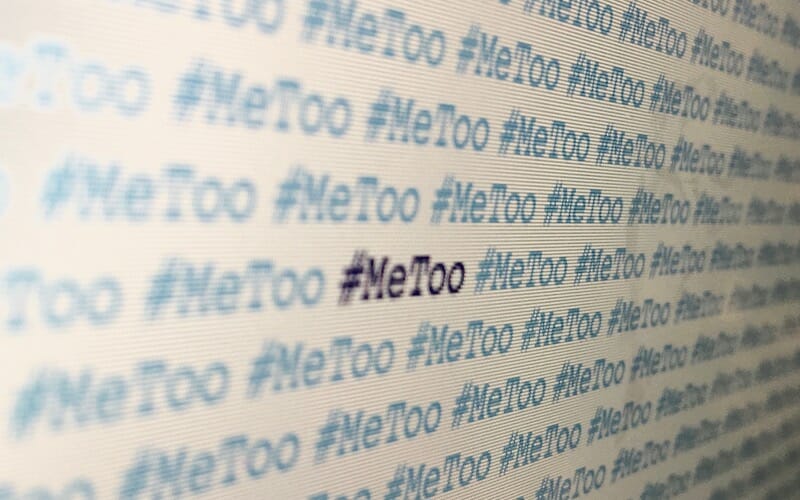
#MeToo Movement in Korea a Moderate, Yet Effective, Push for Gender Equality
South Korean society was in the past and is in the present largely patriarchal, due to entrenched institutions in the country that continue to center power in the hands of men. An example of a state-sponsored institution that perpetuates gender inequality is the mandatory conscription of most South Korean men. Women are not mandated to serve. As a consequence, feelings of exclusion can arise when male coworkers in a workplace bond over memories of their military service while women coworkers cannot relate.
Of course, the issue is on a much larger scale than social exclusion, but this example nonetheless illustrates how pervasive gender inequality is in South Korea. The issue of gender inequality came to a crossroads in 2016 with the murder of a woman by a 34-year-old man that she did not even know. There is reason to believe that this crime was motivated by hate, because the man allegedly had waited in a unisex bathroom until six other men had left and killed the first woman who entered.
However, the police investigation did not arrive at this conclusion—rather concluded that it was just a crime caused by a man suffering from mental illness. This murder and subsequent criminal proceedings fed into an ongoing online conflict between radical masculinists, the community on the website Ilbe, and radical feminists, the community on the website Megalia.
Again, one major source of contention was mandatory military service, but another polarizing issue was societal norms and roles prescribed for the sexes, namely questions of family structure, and expectations people have of the right conditions to meet before marriage, and the expectations of what happens after marriage. I will be upfront and say that I am an unapologetic feminist, but at the same time, I understand the concerns that both men and women have in South Korea (and this, sadly, precludes anyone identifying outside the gender binary because South Korea is not yet accepting that gender is on a spectrum).
To me, the issue lies in the firm gender roles present in South Korean society, but I would question some of the more radical feminists’ responses to this murder case and in general at the injustices women face. Their anger and frustration is not unfounded, but tactics of “mirroring” sexist comments in countering men with disparaging comments of your own probably further radicalizes the person who made the sexist comment rather than making him understand the faults in what he says. I will concede, however, that the community that the radical feminists were mainly opposed to was the alt-right “meninists,” so reasoned argument and logic would (probably) not have been effective, but on the issue of affecting change in opinion of more moderate, centrist, or perhaps people without much of an opinion, Megalia could have toned down their language.
Interestingly enough, the #MeToo movement, which was first initiated in the US and has and continues to shed light on the common but hidden phenomena of sexual harassment and sexual assault, has been gaining traction recently in Korea. While, admittedly, sexual harassment and sexual assault are just parts of the larger problem, it is significant that increasingly perpetrators of these crimes are being called out for their actions and are facing the consequences. That the mainstream acceptance of the #MeToo movement in South Korea is an indication that relatively less radical feminism is more effective in gaining acceptance and support of gender equality than radical feminism. After all, the #MeToo movement now has the support of South Korean President Moon Jae-in, who respects victims who are coming out of the shadows and is calling for law enforcement to investigate complaints thoroughly.
The moment first got a foothold in January when a female prosecutor accused a senior prosecutor of groping her at a dinner and using his power to have her demoted without a legitimate reason. Since then, more and more people have come forward with their stories, many using the app Blind as a means of anonymously accusing perpetrators because of fears of retaliation from workplaces’ internal reporting structures. Sadly though, many users of Blind report that significant changes have yet to be made in their workplaces. In the age of the Internet, no longer are social movements impeded by national borders. In fact, we have seen many social movements, such as the Arab Spring, gain support quickly due to their presence on social media.
While #MeToo focuses on a different issue, parallels can be drawn between the two. Namely, using a theory of international relations, constructivism, we see norm entrepreneurs advocating new norms in both situations. There is the potential for a norm cascade past a tipping point—that once a critical mass of people support a norm, it is easier for the norm to gain support. Suggest that #MeToo will turn into large demonstrations of civil disobedience is probably too hopeful, but through the emerging #MeToo movement in South Korea, the public is exposed to how women are excluded in certain ways in the workplace and society as a whole and the public is forced to reevaluate their views on gender equality.
Though gender equality has been coming to South Korea, #MeToo shows promise to be a long-awaited step in the right direction, and though #MeToo is a movement with origins outside South Korea, there are signs of progress towards gender equality that have explicit South Korean origins. An example would be the counseling centers that can provide anonymous medical treatment, legal measures, and therapy for survivors of sexual assault that opened at the site of the Pyeongchang Winter Olympics. These counseling centers are the first of their kind at the Olympics, and the fact that the host city is responsible for this change is significant. Relatively more moderate feminist movements, such as #MeToo—as opposed to the radical feminism propagated by the online community Megalia—are seeing actual social change in South Korea, and this is in part due to people being convinced to support new norms.

